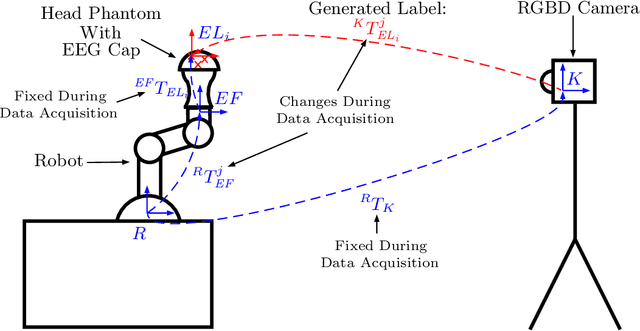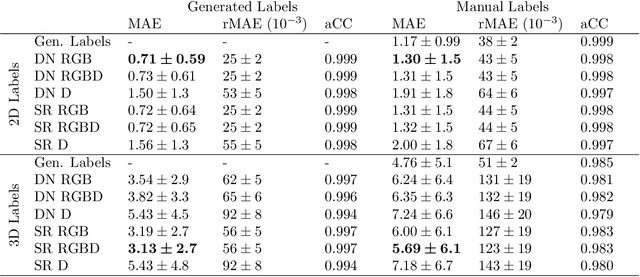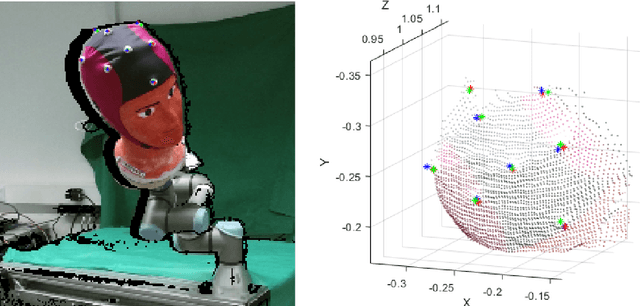Towards Deep Learning-Based EEG Electrode Detection Using Automatically Generated Labels
Paper and Code
Aug 12, 2019


Electroencephalography (EEG) allows for source measurement of electrical brain activity. Particularly for inverse localization, the electrode positions on the scalp need to be known. Often, systems such as optical digitizing scanners are used for accurate localization with a stylus. However, the approach is time-consuming as each electrode needs to be scanned manually and the scanning systems are expensive. We propose using an RGBD camera to directly track electrodes in the images using deep learning methods. Studying and evaluating deep learning methods requires large amounts of labeled data. To overcome the time-consuming data annotation, we generate a large number of ground-truth labels using a robotic setup. We demonstrate that deep learning-based electrode detection is feasible with a mean absolute error of 5.69 +- 6.1mm and that our annotation scheme provides a useful environment for studying deep learning methods for electrode detection.
 Add to Chrome
Add to Chrome Add to Firefox
Add to Firefox Add to Edge
Add to Edge